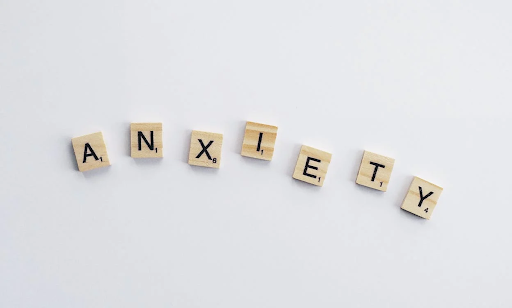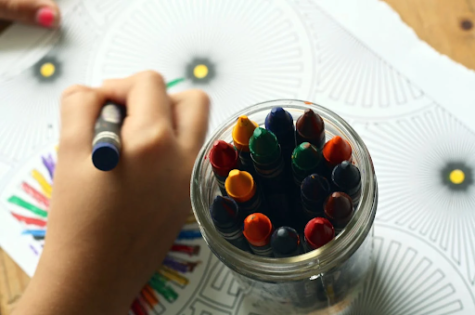Ways to Reduce Anxiety

Photo Source: Pexels.com
June 14, 2023
The statistics of anxiety in teens are at an all-time high and are reportedly rising. Research done by the National Survey of Children’s Health found that the number of adolescents between the ages of six and seventeen diagnosed with anxiety disorders increased by twenty percent between the years 2007 and 2012.
Nearly one in three teens between thirteen and eighteen years old will experience some sort of anxiety disorder, so, what can be done to reduce anxiety in day-to-day life?
The obvious answer would be to meet with a doctor to discuss treatment options, such as therapy or medication. However, there are some things a person can try on top of that. These include…
- Coloring

According to an article written by the Mayo Clinic, coloring is a healthy way to relieve stress as it calms the brain and helps the body relax. Coloring can improve a person’s feelings of anxiety and depression, while also decreasing a person’s heart rate and respiration.
In the article, they recommend that as you color you focus on your breathing rhythm and make sure you take deep breaths that fill your diaphragm.
When coloring, you are able to solely focus on the artwork and not on what is making you feel anxious. Using coloring as a distraction from this anxiety can help a person relax their mind while also having fun in the process.
2. Meditation
When a person meditates, they focus their attention and are able to eliminate thoughts and feelings that may be clouding their mind and causing them stress.
According to the Mayo Clinic, “Meditation can produce a deep state of relaxation and cause a tranquil state of mind.” Meditation is a very popular way to relieve anxiety as it is inexpensive and available to everyone.
It only takes a few minutes out of your day to meditate, and you can meditate nearly anywhere. There are many different types of meditation, so you should find which type works best for you. Some of the different types include:
- Guided Meditation
- Mantra Meditation
- Focused Meditation
- Transcendental meditation
- Tai Chi
- Qi gong
Some people find meditation to be very helpful, while others can’t tolerate it, and that’s okay. As I said before, you should find what work for you.
3. Journaling
Journaling is a great way to reduce stress and anxiety. When a person writes down their feelings it can help them control their symptoms and give them an outlet to express themself.
The University of Rochester says that “journaling can improve your mood by helping you express your fears or concerns, allowing you to track your day-to-day symptoms, and providing an opportunity for you to practice positive self-talk.”
Anxiety can cause a person’s mind to race with thoughts. So, writing down and journaling their thoughts and feelings can really help clear their mind. Journaling can also work really well for individuals who don’t like talking out their thoughts and feelings.
4. Exercise
Regular exercise is a great way to reduce feelings of anxiety and depression. More specifically aerobic exercises such as running, swimming, and cycling.
The Anxiety & Depression Association of America (ADAA) says that “aerobic exercise has been shown to improve a person’s mood, help sleeping patterns, improve one’s self-esteem, and decrease feelings of tension.”
You don’t need to exercise for very long to start to feel the benefits of exercise. It only takes about five minutes of aerobic exercise to stimulate the anti-anxiety effects. This is due to the fact that movement causes the release of endorphins, dopamine, and endocannabinoids. All of these are known as “mood-boosting” neurotransmitters.
The idea of exercising can be very overwhelming to some people. However, the benefits of exercise might be enough to get people up and moving.
In Conclusion…
Anxiety is one of the most common disorders in America, with one in five adults and one in three teens suffering from it. There are many different ways to treat anxiety, and everyone should find what works for them. What works for someone may not work for another, and that’s okay.
This is just a rough list of some ideas of ways to reduce anxiety in one’s life. However, I strongly encourage seeking the advice of a licensed professional when it comes to more permanent ways to reduce anxiety. As I have repeated throughout this article, everyone needs to find what works best for them personally.
